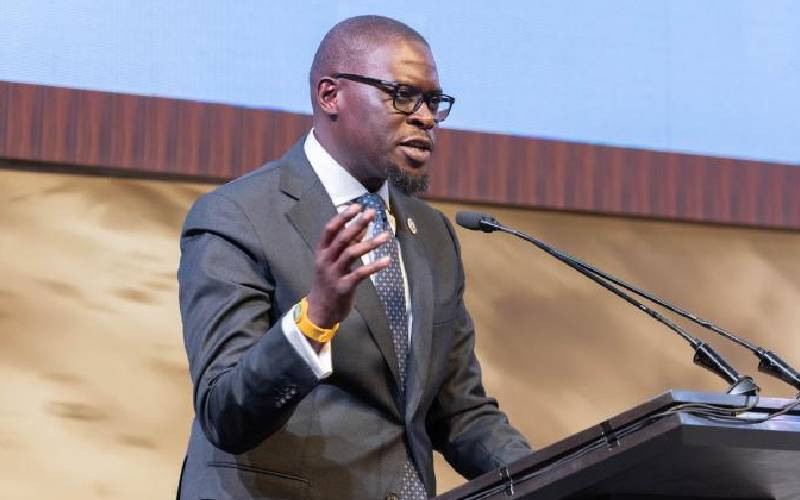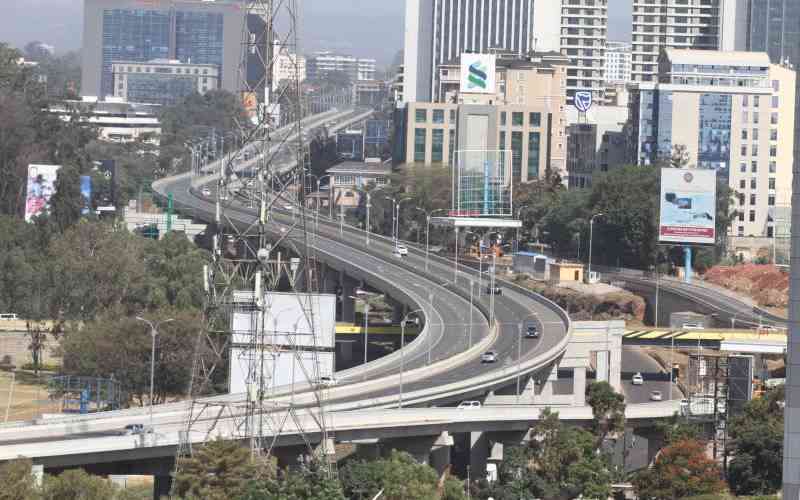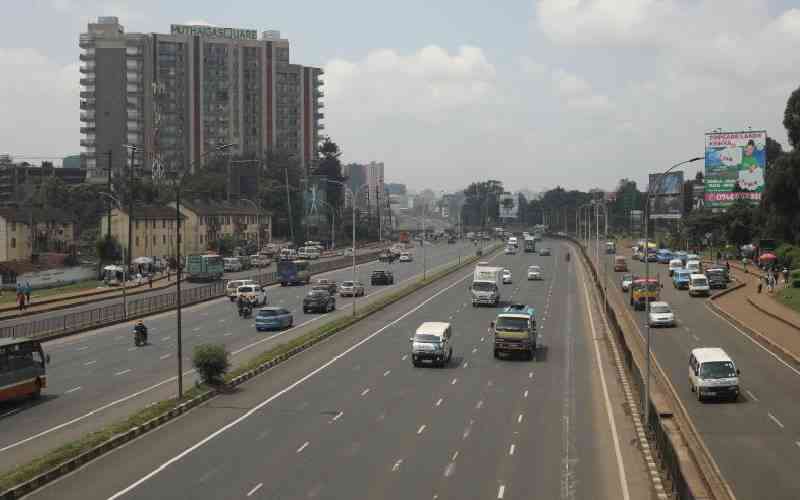
Nairobi has been described as many things over the years, with the running theme being that it is a city full of promise.
Different wealth and investment indices over the last few years have consistently ranked Nairobi as one of the key business pillars in Africa, jostling with South African cities Johannesburg and Cape Town to the south and Ghana’s Accra to the West.
The Government and news features throughout President Obama’s visit focused on the creative innovations that Kenyans and African delegates at the summit have come up with to solve social problems in the non-urban setting. Not much was mentioned about the urban setting, however.
To be fair, the 2015 Global Entrepreneurship Summit had ‘a particular focus on women and youth’ as the official website says.
The website also states: “Nairobi as host city for the 2015 GES underscores how Africa — notably Kenya — has become a centre for innovation and entrepreneurship. Kenya is a world leader in mobile money systems, like M-Pesa, and a driver of innovation through technological research and incubation labs like “iHub.”’
Similarities
Nairobi residents share the same characteristics as people in California, New York and Singapore. Rapid transformation of the city’s economy through technological advancement is the basis for definition of ‘Super Cities’ otherwise known as ‘Global Cities’ according to Knight Frank’s Global Cities Report, 2015.
“Rapid technology change is reshaping the city economy, and buildings must match these changes to be fit for purpose. The report identifies super, prime offices, skyscrapers, and all-in offices as the real estate best placed for future growth,” notes John Snow in the report.
This Knight Frank Global Cities Report is intended to help with planning for future business strategy, by highlighting the future trends in real estate.
Looking back however, does Nairobi have the capacity to sustain the future, urban-living needs of this country in generations to come?
Does Nairobi truly have what it takes to become a global city? How does it compare with the rest of Africa; are they also a ‘hotbed of investments’ and will Nairobi maintain its focus as a potential business hub for Africa?
In recent years, there has been the emergence of what Knight Frank Global Cities Report, 2015 describes as ‘renaissance of global cities.’
In the report, global cities are described as having ‘the most productive workers, drawing great name companies, high-flying financial firms, and the start-ups that become tomorrow’s star tech companies’.
These are not new terms to Kenya. We have one of the highest literacy levels across Africa. As of May this year, Icpak (Institute of Certified Public Accountants of Kenya) members were eligible to access jobs in the United Kingdom without having to undergo further training.
Stay informed. Subscribe to our newsletter
This is a milestone for Kenyan professionals. Our competence and professionalism is recognised internationally. However, Nairobi does not come anywhere near the top list of Global Cities, which includes Sydney, Paris, Singapore, San Francisco and London.
Nairobi has been mentioned in previous international reports, including Knight Frank’s Wealth Report, as a top property market. However, we are nowhere to be seen on the Global Cities Report.
What made Nairobi miss out? Something that is described as an urban-planning problem that was best explained during the 2nd African Urban Infrastructure Investment Forum (AUIIF) in Angola’s capital, Luanda in April this year.
Planning problem
Africa’s main urban-planning problem is worsened by ‘unprecedented growth rates that are creating huge commercial opportunities, thereby increasing great inequalities and potential for social tension.’
In other words, the inequalities might be too much for urban cities like Nairobi to bear. The more we grow commercially as urban cities, the greater the chance that we will be creating more ‘Kiberas’ (or other concrete slums such as the wider Pipeline estate in Embakasi).
The reason experts such as Nairobi-based Urban Planner Mairura Omenga, advocate for a better Nairobi is because of the statistics at hand.
The McKinsey Global Institute forecasts that by 2030, the continent’s 18 largest cities will have a combined spending power of US$1.3tr (Sh 130 trillion).
Africa’s average urban population is set to increase threefold, from 400 million to 1.2 billion. This means that a quarter of the world’s urban population — or the equivalent of Africa’s current total population — will live in African cities.
The major challenge for African governments, therefore, is to build urban environments that meet the needs of residents and investors,’ it was noted during the forum.
Nairobi as the New-York of Africa?
Nairobi, as the biggest business hub in East Africa and having just concluded the ‘future-generation’ oriented Global Entrepreneurship Summit, has been hailed for its infrastructure development. So has everywhere else.
In Luanda for example, where another huge conference — the 2nd African Urban Infrastructure Investment Forum (AUIIF) — was held, the Angolan government used the conference as an opportunity to showcase ‘New Centralities’, its flagship urbanisation project.
This is similar to Kenya’s Tatu City and Government-propelled, Konza City. Kenya has also been promoted as an infrastructural, next-generation frontier, but that is not enough to wane off future urban inequality problems that would make it take longer for Nairobi to be identified as a key Global City.
This week, Cape Town’s transport authority through a press release, noted that “high-quality, high-capacity public transport is the only way for Africa’s increasingly congested cities to accommodate sustainable economic growth”.
It also noted that “Cape Town grapples with the same issues as Lagos, Nairobi, Accra and other African cites such as massive and rapid urbanisation, and glaring socio-economic inequalities”.
Cape Town is number nine on the list of Africa’s most populated cities as listed by the UN, and published in The Economist. Cape Town is followed closely by Nairobi at number 12 and Angola’s Luanda (16).
A quick look at Cape Town’s transport infrastructure reveals that, “Cape Town grapples – on many fronts – with the legacy of apartheid spatial planning: the legacy is a sprawling city with low densities and poorer communities located on the outskirts of the city, far removed from economic opportunities and excluded from many of the city’s key social amenities”.
Cape Town
Apartheid or not, Nairobi is similar to Cape Town in that there is one mode of reliable and stand-by transportation between Nairobi and nearby towns such as Thika, Kiambu and Machakos.
Our capital has seen a number of improvements on the transport front with the construction of the standard gauge railway, which is running through it, and the unveiling of Nairobi’s urban development master plan which seeks to expand and integrate the road network to reduce congestion particularly in the central business district.
But in order for cities such as Konza City to work and in order for it to make sense to buy a quarter of an acre in Isinya to live an urban lifestyle more than 100 kilometres from Nairobi, there needs to be “high-quality, high-capacity public transport”, that not only seeks to reduce congestion, but grow other areas.
The mix of suburbs and low-quality of housing in the inner city of Nairobi also stands in the way of Nairobi becoming a global city.
“Firms today are scrambling to secure knowledge workers who can place them ahead of these trends. The resounding message from around the world is that such workers want the lifestyle that is afforded by big cities, something which has turned them into talent magnets, and consequently multi-national corporations feel it is essential to locate in Global Cities,” notes the Knight Frank Global Cities Report.
It adds :”They also benefit from the critical mass and market efficiencies that arise from creating industry clusters, as shown by the tech hub in Silicon Valley, and the Lloyd’s insurance cluster in London.
— [email protected]
 The Standard Group Plc is a
multi-media organization with investments in media platforms spanning newspaper
print operations, television, radio broadcasting, digital and online services. The
Standard Group is recognized as a leading multi-media house in Kenya with a key
influence in matters of national and international interest.
The Standard Group Plc is a
multi-media organization with investments in media platforms spanning newspaper
print operations, television, radio broadcasting, digital and online services. The
Standard Group is recognized as a leading multi-media house in Kenya with a key
influence in matters of national and international interest.
 The Standard Group Plc is a
multi-media organization with investments in media platforms spanning newspaper
print operations, television, radio broadcasting, digital and online services. The
Standard Group is recognized as a leading multi-media house in Kenya with a key
influence in matters of national and international interest.
The Standard Group Plc is a
multi-media organization with investments in media platforms spanning newspaper
print operations, television, radio broadcasting, digital and online services. The
Standard Group is recognized as a leading multi-media house in Kenya with a key
influence in matters of national and international interest.









